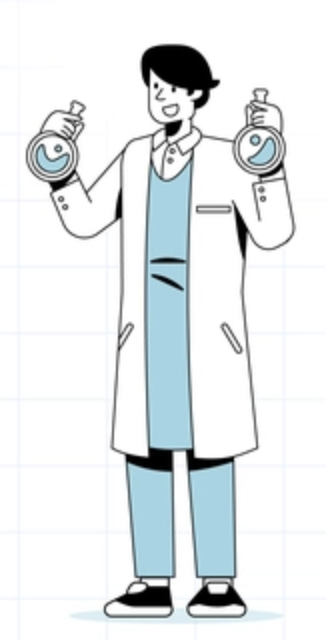The Comprehensive Guide to Becoming a Pharmacy Technician and Thriving in Your New Career

 Are you interested in pursuing a career as a pharmacy technician? Do you want to learn the ins and outs of this vital healthcare profession and set yourself up for success? Look no further than The Comprehensive Guide to Becoming a Pharmacy Technician and Thriving in Your New Career.
Are you interested in pursuing a career as a pharmacy technician? Do you want to learn the ins and outs of this vital healthcare profession and set yourself up for success? Look no further than The Comprehensive Guide to Becoming a Pharmacy Technician and Thriving in Your New Career.
First, I just want to clarify the difference between a pharmacy technician and a pharmacist. A pharmacy technician works alongside pharmacists to help prepare and dispense medications, maintain medication inventory, and provide customer service to patients. While a pharmacist requires years of additional education and training to become licensed to independently prescribe medications and offer clinical services.
This guide is a must-have for anyone serious about launching a fulfilling and rewarding career in pharmacy. Packed with in-depth information and practical tips, this guide covers everything from industry trends and job outlook to the day-to-day responsibilities of a pharmacy technician.
In addition to providing a comprehensive overview of the profession, this guide offers advice on how to get started, including education and certification requirements, job search strategies, and resume and cover letter writing tips. You'll also find insights from experienced pharmacy technicians, who share their own journeys and offer valuable advice for newcomers to the field.
Whether you're a recent high school graduate looking to start your career or a seasoned professional looking to switch gears, this guide has something for everyone. With its expert guidance and wealth of information, The Comprehensive Guide to Becoming a Pharmacy Technician and Thriving in Your New Career is the ultimate resource for anyone looking to excel in this exciting and challenging field.
Pay and benefits for Pharmacy Technicians
Pharmacy technicians play an integral role in the healthcare industry as they work alongside pharmacists to prepare and dispense medications, manage inventory, and provide excellent customer service to patients. The average pay range for pharmacy technicians ranges from $25,000 to $50,000 per year, depending on factors such as location and experience level. However, opportunities for career advancement and increasing your earning potential exist, particularly as you gain specialized skills and experience.Working for large corporations such as Walgreens, Costco, or CVS can provide exceptional benefits to pharmacy technicians. Health and dental insurance, 401k retirement plans, and paid time off are among the perks these companies typically offer their employees. These benefits can help pharmacy technicians feel secure and valued in their role, supporting their overall health and well-being.
In short, This Comprehensive Guide to Becoming a Pharmacy Technician and Thriving in Your New Career is your all-in-one resource for launching a successful career in pharmacy. With its expert advice and insider knowledge, you'll be well on your way to becoming a pharmacy technician.
That being said, here are the steps you can take to become a pharmacy technician:
1. Research state requirements: Each state has different requirements for becoming a pharmacy technician. Some states require pharmacy technician certification, while others only require on-the-job training or a high school diploma. Be sure to research the requirements specific to your state before taking any further steps.
2. Complete a pharmacy technician training program: While not all states require formal education, completing a pharmacy technician training program can help you stand out in a competitive job market. These programs can vary in length and format - some may be online, while others require in-person attendance. Look for programs that are accredited by the Accreditation Council for Pharmacy Education (ACPE).
3. Gain hands-on experience: Many pharmacy technician training programs include clinical experience or externships, but you can also seek out additional opportunities to gain hands-on experience. Consider shadowing a pharmacy technician at a local pharmacy or hospital, or volunteering at a community clinic. I think this is the best way to get a head start. Make sure you do have the basic key skills nailed down, which are:
- Data entry: Needed for entering patient information, insurance information, and prescription information into the pharmacy's computer system. Accuracy is important here, as it will affect the patient's finances and health. Data entry skills are also used to generate reports, track inventory, and order supplies.
- Great communication skills: Developing strong communication skills is essential to provide excellent customer service and to ensure that patients receive the correct medications and dosages. You must be able to communicate clearly and effectively with patients, pharmacists, and doctors.
- Strong math skills: Pharmacy technicians must be proficient in math to ensure accurate dosing and proper medication delivery. A small miscalculation or error in data entry can lead to serious consequences. Basic math skills such as fractions, percentages, and ratios are necessary, as well as algebra and geometry in more complex situations.
- Understand HIPPA: HIPAA is Health Insurance Portability and Accountability Act. Health care providers must keep patient information confidential. Health care providers must take steps to protect patient information from unauthorized access. Patients have certain rights with respect to their health information, including the right to access their records, the right to request restrictions on the use
- Understand medication terminology: Pharmacy technicians need to know how to read and interpret medication labels, drug information sheets, and prescription instructions. You should have knowledge of medical terminology and abbreviations such as QD, BID, TID, and QID.
- Attention to detail: A pharmacy technician must be detail-oriented and meticulous to ensure that the right medication, dosage, and instructions are given to the patient. They must be able to spot and rectify any errors or potential risks before they happen.
- Demonstrate professional conduct: Pharmacy technicians must maintain a high level of professionalism at all times. This can be as basic as showing up on time, have proper hygiene, dress professionally, etc. They work with sensitive and confidential information and must maintain patient privacy and confidentiality. You should be friendly, attentive, and approachable while maintaining a professional outlook. And remember to have compassion and patience for the patients that are coming to your pharmacy because they or their loved one are sick.
4. Pass the Pharmacy Technician Certification Exam (PTCE): The PTCE is a nationally recognized certification exam for pharmacy technicians. Even if your state doesn't require certification, obtaining your certification can increase your job prospects and earning potential.
5. Apply for jobs: Once you have completed the above steps, it's time to start applying for pharmacy technician positions. Look for job openings at local pharmacies, hospitals, and other healthcare facilities. Don't forget to update your resume and prepare for any interviews you may land. Also try to network with your classmates and apply at pharmacy specific job boards like Happy Pharmacy Jobs or CareerPharm.
6. Excel in your new career: Once you land your first job as a pharmacy technician, it's important to continue learning and growing in your role. Ask questions, seek feedback, and take advantage of any training or development opportunities offered by your employer. By continuing to improve your skills and knowledge, you can become an invaluable asset to your team and advance your career over time.
Now that you're a pharmacy technician, here are some tips for thriving in your new career:
1. Stay current with industry updates and trends: Healthcare is an ever-changing industry, and it's important to stay up-to-date on new medications, regulations, and technologies. Attend conferences, read industry publications, and join professional organizations to stay informed.
2. Maintain open communication with pharmacists and patients: As a pharmacy technician, you'll be interacting with both pharmacists and patients on a daily basis. Clear communication is essential to ensuring that everyone is on the same page and that patients receive the best possible care.
3. Practice strong organizational skills: The pharmacy can be a busy and fast-paced environment, so it's important to stay organized. Keep track of inventory, maintain a clean workspace, and keep accurate records.
4. Develop strong customer service skills: Pharmacy technicians are often the first point of contact for patients, so it's important to have excellent customer service skills. Be patient, empathetic, and willing to go the extra mile to help patients with their medication needs.
5. Continuously improve your skills: Whether it's pursuing additional certifications or taking courses in new pharmacy technology, continuous learning is key to staying current and growing your career.
By following these steps and tips, you will be well on your way to becoming a successful pharmacy technician. Remember, this is a vital and rewarding career in the healthcare industry, and your contributions make a difference in the lives of patients every day. Good luck and happy learning!
_________